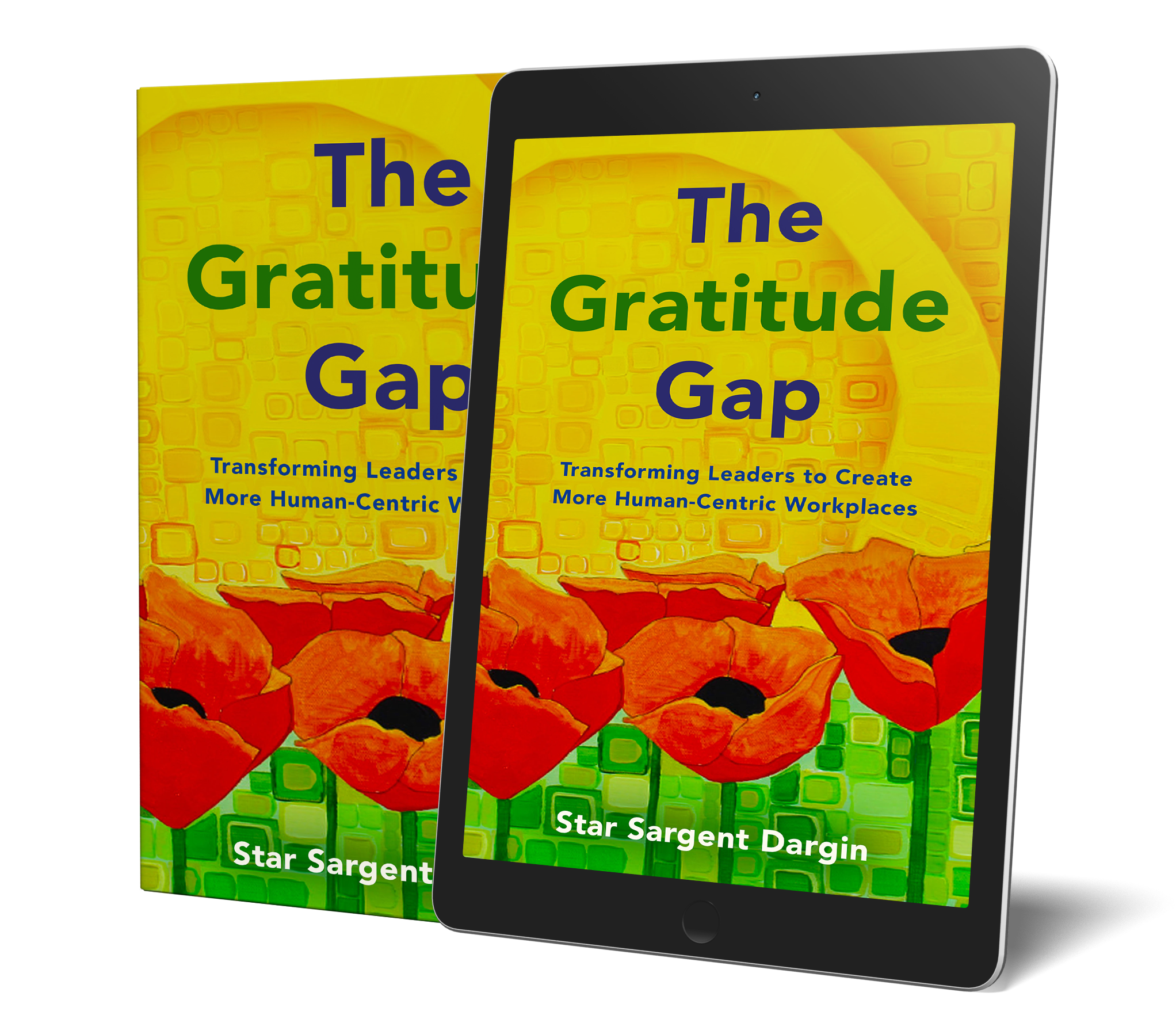Without gratitude, organizations are unhealthy, thankless, fear-filled, gossipy, and self-ruminating. People are stressed and do not readily let go of anger. Decisions and actions come from experience, fear, unreasonable deadlines, apathy, or ignorance.
Gratitude is the simple secret to changing an unhealthy organization, one person and situation at a time. When leading with gratitude, we create health y, positive, forward-moving organizations. Leading with gratitude changes our focus, the problems we solve, and their solutions. Gratitude allows innovation and creativity to flourish. Gratitude can be learned and strengthened. It can be applied to even the most complex and chaotic situations. Leading with gratitude in difficult situations is easy to understand, hard to apply, but powerful when used. Gratitude is transformational, for individuals and business.
y, positive, forward-moving organizations. Leading with gratitude changes our focus, the problems we solve, and their solutions. Gratitude allows innovation and creativity to flourish. Gratitude can be learned and strengthened. It can be applied to even the most complex and chaotic situations. Leading with gratitude in difficult situations is easy to understand, hard to apply, but powerful when used. Gratitude is transformational, for individuals and business.
When asked to define gratitude, most people hesitate before answering because there are so many ways to respond. Gratitude definitions from various people include:
- Emotion or Feeling
- Virtue
- Value
- Approach
- Skill
- Personality trait
- Habit
- Concept
It’s all of those! Gratitude is external and outward facing. Gratitude does not exist without a comparison. I am grateful I have a great manager (I know what horrible bosses are like). I am grateful to work for a company that cares for its people (I have worked for one of those that does not). I am grateful to feel good today (I know what feeling bad is like). Even if you have not had the experience of a bad boss, bad company, or feeling bad, you can imagine those experiences. Even something as simple as, “I feel grateful,” is a comparison to a time when you were not feeling grateful. It is a versatile word.
In teaching gratitude, we use it as a skill and approach that can be learned and strengthened like a muscle. Our definition is: “Gratitude is using conscious appreciation as a way of being and an actionable approach that results in positive engagement and innovation.”
Gratitude is simple, but not easy. It does have challenges. Leading with gratitude requires authenticity. Without authenticity, leaders can be too trusting, too nice, they can be zealots, relentlessly pursuing optimistic outlooks, not seeing reality. True gratitude is not denying or ignoring the hard, difficult, and complex.
Gratitude is not about repaying a debt, feeling obligated, or being required to give back. True gratitude can’t be faked and is much more than being socially acceptable and saying, “thank you.” Gratitude is not about being happy all the time.
The investment is low, the risk is low, and you have nothing to lose. It is better than the unhealthy alternatives. Why not invest now in building your gratitude muscle?

